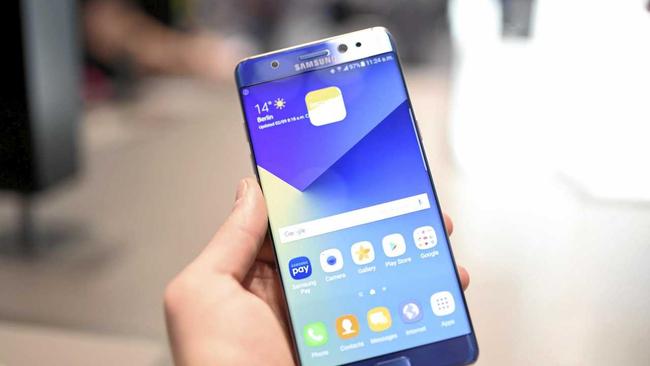'Gooligan' hack hitting 13,000 Android phones per day
Early this month it was revealed that android users, the operating system used on Samsung devices, were vulnerable to a major security flaw.

Ballina
Don't miss out on the headlines from Ballina. Followed categories will be added to My News.
IF you've travelled recently, you'll have been asked to leave your Samsung Galaxy Note 7 at the gate before you board your plane.
Since early October, Qantas and Virgin Australia have banned the troubled phones on all flights after US aviation transport authorities banned the phone over concerns that it represents a fire hazard.
But things have gone from bad to worse.
Early this month it was revealed that android users, the operating system used on Samsung devices, were vulnerable to a major security flaw.
Last week Check Point, a large international cyber security firm, revealed that around 13,000 android smartphones are being breached per day by a hack called "Gooligan".
Android is the operating system used by a number of smartphone producers, including Samsung.
Like most hacks, this one relies on the user of the device to download apps via unsafe stores that contain malware which is specifically targeting the Google accounts of android users.
If you download your apps from the apps store on your phone or Google Play, it seems you're okay. However, if you have used third-party sites to download apps, there are some risks.
Apps are developed for use by devices that have one of two operating systems - android or iOS (Apple).
Both android and Apple require app developers to go through a quality assurance process.
The level of detail differs slightly between them but both do consider security vulnerabilities.
One such vulnerability relates to how secure an app is in relation to carrying malware.
The threat here relates to the likelihood that if someone downloads a new app, they're not just downloading an app, but infecting their device with malware (a virus).
Check Point advises that certain android apps have been identified as realising this very threat - they are a means for criminals to have their malware downloaded.
The advice relates to apps that are being downloaded from "third party" sites - not the app marketplaces that one has on their smartphones (such as Galaxy Apps and Google Play Store).
When these apps are downloaded, the virus infects the smartphone. It appears that this virus targets the user's Google accounts by stealing their authentication/passwords.
This presents an opportunity for criminals to access data on the user's Gmail, Google Docs, Google drive and other Google services - hence the name "Gooligan".
If you're unsure as to whether your device has been infected, a free service has been set up by Check Point to check user names (for full details visit www.gooligan.
checkpoint.com).
The Check Point service requests users to enter their email address. A search is then conducted against known compromised accounts.
Check Point advises on their site that they will not collect, store or use the email address information provided for any other purpose than to check whether an account is one of more than a million compromised Google accounts they know about.
Professor David Lacey is a Senior Research Fellow at the USC and managing director of IDCARE.
Originally published as 'Gooligan' hack hitting 13,000 Android phones per day


